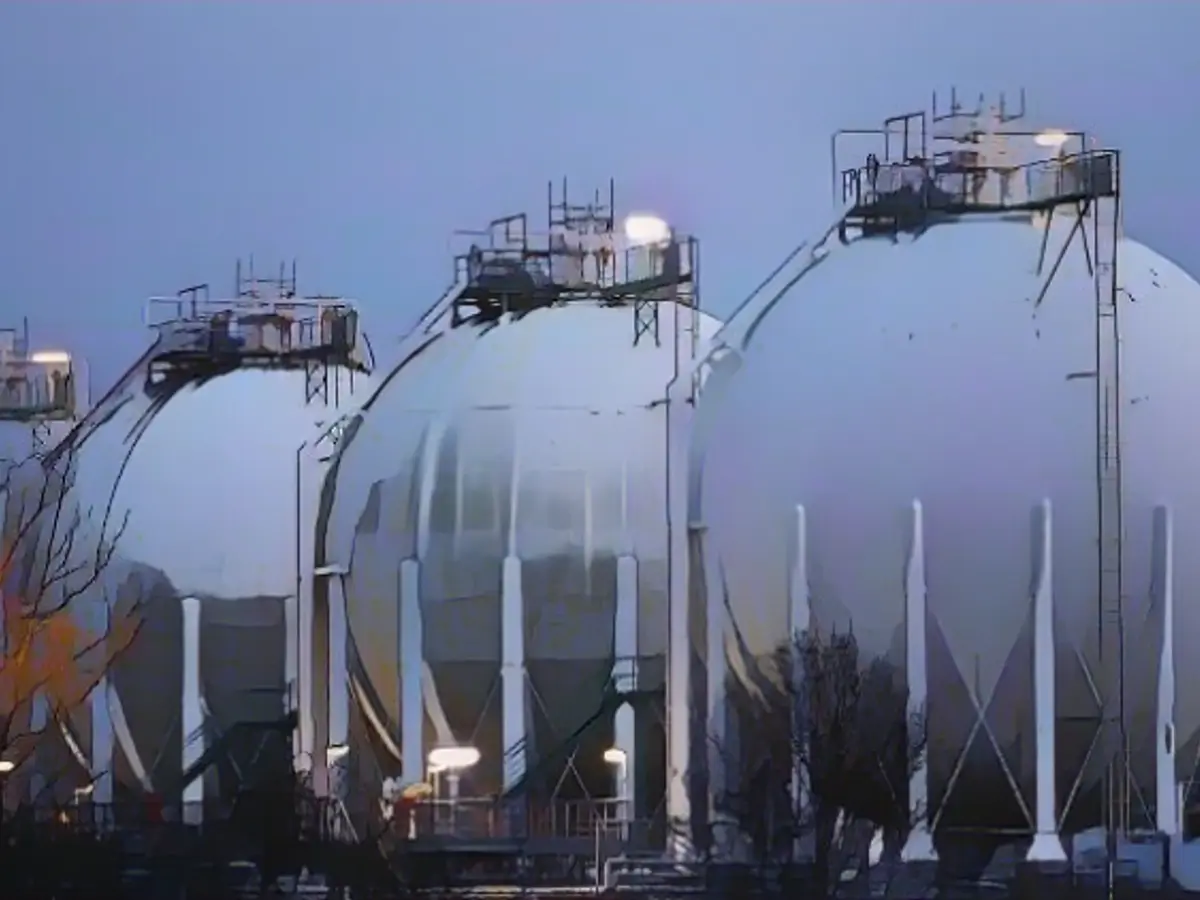German gas storage facilities filled "well above average"
Winter has long since begun and German gas storage facilities are still full to the brim. The industry association and the Federal Network Agency see this as good news. Germany would even be equipped for extremely low temperatures. But fewer and fewer people want to save energy.
Germany is entering the new year with plenty of natural gas in storage. According to data from the European Gas Storage Association (GIE), the total fill level was 90.8 percent in the morning. Exactly one year earlier, it was 88.8 percent. The largest German storage facility in Rehden, Lower Saxony, was 81.2 percent full in the morning. Across the EU, storage facilities are also still fairly full. According to the GIE, the fill level was 87.0 percent.
The amount of gas in full storage facilities roughly corresponds to the consumption of two to three average cold winter months. The last time gas storage facilities in Germany were 100 percent full was on November 5.
The gas storage facilities balance out fluctuations in gas consumption and thus form a buffer system for the gas market. Filling levels usually decrease in winter and increase again after the end of the heating period. In recent weeks, unlike usual, there were several days on which on balance more was injected than withdrawn, i.e. levels increased.
Stable imports from Norway and the EU
According to storage association Ines, the current level is "well above average". "The mild temperatures in November and December ensured relatively low consumption and prevented the gas storage facilities from being emptied to a greater extent," said Sebastian Heinermann, Managing Director of the industry association Initiative Energien Speichern (Ines).
The President of the Federal Network Agency, Klaus Müller, expressed his satisfaction: "People have saved a lot of gas this year. This has given us a good cushion for the winter. The storage facilities are still very well filled. We are well equipped for the second half of the winter. A few cold days are no cause for concern. At the beginning of December, however, we could see how much gas consumption increases as soon as it gets colder," he explained. Stable imports are therefore important for securing the gas supply.
Gas continues to flow into Germany and into storage facilities, primarily through pipeline imports. According to the Federal Network Agency, most of the gas on Wednesday came from Norway, the Netherlands and Belgium. Gas also flowed into the German gas grid via the new LNG terminals on the German coasts. Germany also purchased natural gas from Switzerland and Denmark.
Prepared for extreme cold
The industry association is also confident that the gas supply is secure this winter. "The gas supply should now be fully guaranteed even in extremely cold temperatures," said Ines Managing Director Heinermann. "If there are no unforeseen risks, we will get through the rest of the winter well."
Network Agency boss Müller said he was grateful that many people were using gas more consciously. It is worth considering exactly what consumption can be saved. "Every kilowatt hour saved also makes a real difference to the household budget," he emphasized.
However, saving energy as a New Year's resolution is much less popular in households this year than in 2022, according to surveys conducted by the opinion research institute Yougov for the energy service provider Ista. While around 43% of Germans resolved to use less energy at home around a year ago during the energy crisis, only 29% will do so in 2023.
Read also:
- Why there is still no EU funding for green Saar steel
- 3 billion Saar Fund is unconstitutional
- Lack of snow also opens up new opportunities for winter tourism
- Abrupt end to e-car subsidies
The surplus natural gas in German storage facilities is due in part to stable imports from Norway, the EU, Switzerland, and Denmark, as well as the operation of new LNG terminals along the German coast. Despite fewer individuals actively conserving energy, the Federal Network Agency and industry association are optimistic about Germany's ability to maintain its natural gas supply, even in extreme cold temperatures.
Source: www.ntv.de








